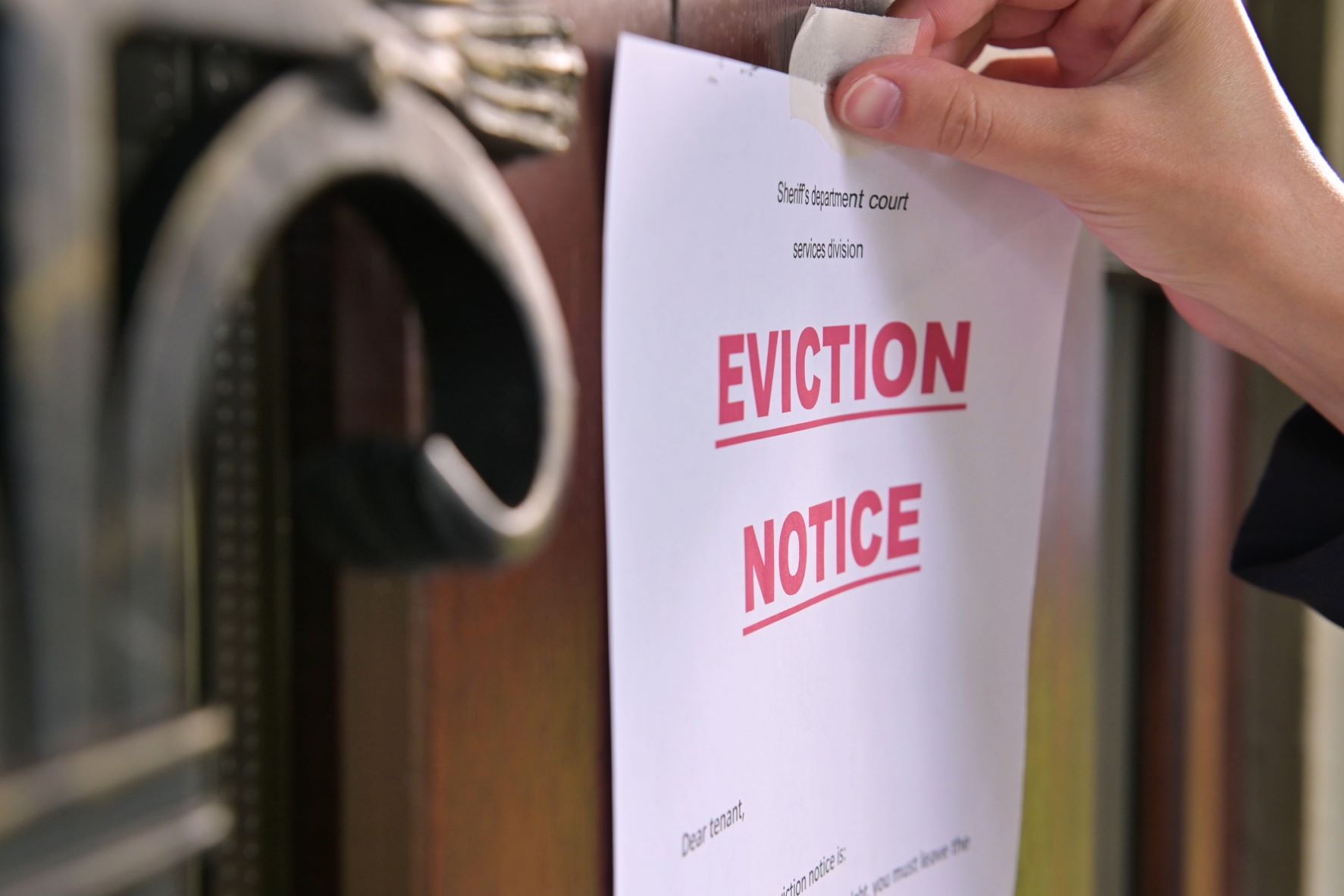No one ever likes to consider that the day may arrive when they have to evict a tenant from their rental property. It’s a stressful event for everyone involved – the property owner who is not receiving rent or may want to re-take possession of their property, and the tenant who may be going through a difficult financial time and is facing an unwanted move.
But, like it or not, circumstances do arise when landlords must take action. Remember that owning and managing investment properties is a business.
Thankfully, state laws lay out the proper ways to go about evicting a tenant for breaching a lease. Laws vary from state to state, so we will use North Carolina’s eviction statutes as a basis here. Be sure to familiarize yourself with the eviction process and coordinating laws in your area.
Here are some dos and don’ts when it comes to handling the process of evicting a tenant.
DON'T: Try Self Eviction
Do not try to coerce or intimidate the tenant into moving out by doing things like turning off utilities, changing the locks or otherwise harassing the tenant in an attempt to make their living situation untenable. This method is often referred to as “self-help eviction.” Most of these tactics are illegal and will likely provide the tenant grounds for legal action against you.
tenant in an attempt to make their living situation untenable. This method is often referred to as “self-help eviction.” Most of these tactics are illegal and will likely provide the tenant grounds for legal action against you.
DO: Give a Quit or Pay Notice
Landlords need to give notice to tenants that they intend to begin the eviction process. For example, in North Carolina, landlords need to provide a 10-day notice to “quit or pay.” If the tenant does not pay the rent they owe within ten days, a landlord can file eviction paperwork.
DON'T: Accept Payment After Lease Expiration
Do not accept payment or partial payment from a tenant whose lease has expired and who you want out of your property. In North Carolina, a landlord has no obligation to provide a tenant options when a lease expires. Still, if payment is accepted after the expiration of a lease, it may create a new tenancy based on the original lease terms.
DO: Give Expiration Notice
While there is no obligation for a landlord to provide options to a tenant at the end of a lease, the landlord must provide a tenant notice of an expiring lease. In North Carolina, for an annual lease, a landlord must give a tenant one month’s notice that the lease is expiring and that they must vacate. If the tenant does not vacate on the lease expiration date after receiving proper notice, the landlord can immediately file eviction papers.
But My Tenant is Violating the Lease
Sometimes tenants violate the terms of a lease agreement. While it may be in your nature to offer the tenant the opportunity to correct the violation, North Carolina law does not require landlords to do so. Perhaps you learn your tenant is keeping a pet or has brought in an unauthorized tenant in violation of the lease. In such cases, landlords may begin eviction without further notice unless the lease specifies that the tenant be offered the opportunity to correct the violation.
Criminal Activity
If criminal behavior like drug trafficking is happening at the property, the law does provide an expedited eviction process. Also, if tenants willfully cause damage to a property, they may be charged with a misdemeanor.
The above list is not meant to be exhaustive or complete, so please make sure to familiarize yourself with the laws on whatever situation may be leading to your consideration of eviction.
In general, eviction is a tedious process and one that most involved hope can be avoided. Therefore, it is usually in everyone’s better interests to work out matters before taking the steps toward eviction. But sometimes, it is unavoidable.
As a leading property management firm in the Cape Fear region, Sweyer Property Management certainly recommends that property owners strongly consider working with a trusted and experienced property management company. Whether it pertains to the eviction process or another area of handling your investment properties, we want to make sure property owners and investors understand the relationship they are entering into when choosing to work with a property management firm.
If you have investment properties and do not use a professional management company, we hope you consider doing so. The experts at Sweyer Property Management will be happy to provide you with a free rental analysis or, if you prefer, give us a call at 910-256-3031.
Sweyer Property Management is a full-service professional property management company that specializes in all aspects of rental management. If you’re an investor or property owner looking to learn more about our services and what a professional property manager can do for you, reach out to us today at 910.256.3031 or via our website. Sweyer Property Management has exhibited continuous growth throughout the Wilmington, Leland and Hampstead areas while maintaining an excellent Google+ rating for customer service.



